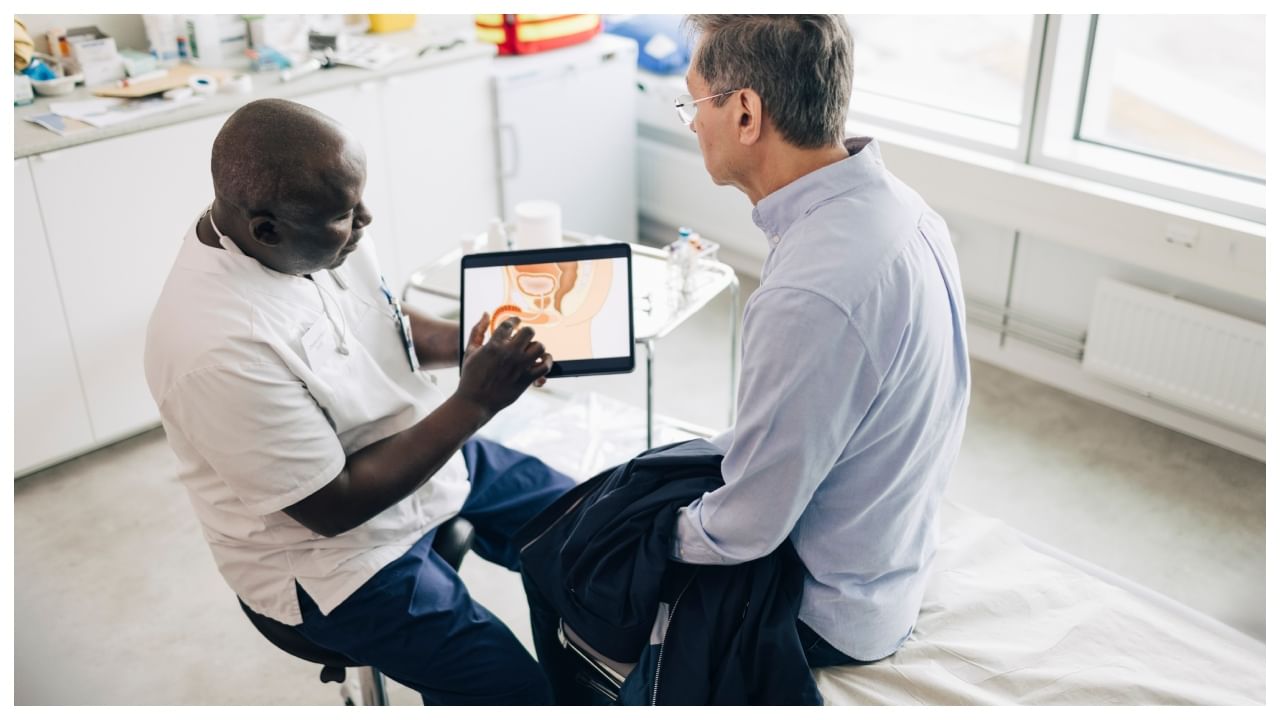New Delhi: Prostate cancer often sneaks up quietly. Early on, it can feel like nothing more than an annoying need to pee at night or a little urinary slowdown, easy to shrug off as “just getting older.” In India, that shrug often turns into months or years without a proper check, and by the time some men see a specialist, the disease has already moved beyond the prostate. Recent reporting from Indian centres notes that in some regions as many as 60–70% of prostate cancers are detected at advanced stages, a statistic that helps explain worse outcomes compared with countries that catch the disease earlier.
Why men delay: culture, cost, and confusion
There are three big, human reasons behind late diagnosis. To begin with, awareness is low: lots of men and families do not know about early warning signs or the benefits of simple screening tests. Second, social taboos and embarrassment about talking about urinary or sexual symptoms delay men from speaking to a doctor. Third, structural barriers, including long distances to specialized centers, costs associated with testing, and overcrowded public hospitals, make timely follow-up for many Indians, especially difficult. Studies and reviews of prostate cancer awareness in India and Asia point to this mix of cultural and access issues as a repeating theme.
The medical cost of waiting
When prostate cancer is found late, it’s not just an inconvenience — complications multiply. Tumours can become large enough to obstruct the urinary tract, resulting in urinary retention, recurrent infections, and hydronephrosis (swelling of the kidneys), which may impair kidney function. The malignancy may metastasise to bone, resulting in excruciating pain and fractures, or to other organs, necessitating additional/further intensive treatment with a greater risk of side effects. Case report(s) and case series from India and abroad report these obstructive and metastatic complications as common presentations in late diagnosis.
Screening: helpful but complicated
The solution seems apparent: screen earlier. While this seems simple, screening for prostate cancer is complicated. The PSA blood test, which is used worldwide to help assess for prostate abnormality, can lead to false positives and overdiagnosis of prostate cancer, which can lead to men having unnecessary (and often harmful) biopsies or treatment, that can cause side effects (like incontinence or erectile dysfunction).
Reasonable guideline groups recommend PSA screening that involves shared decision making: men, especially men 55-69 and those with risk factors, should discuss the possible risks and benefits with their primary provider and not just consent for testing either passively or from a fear of missing something. There are newer, smarter ways to approach patient management (MRI before biopsy, risk-stratification algorithms)—and while these are admittedly less likely to harm and can improve precision, they are all based upon decisions patients and physicians make together, and the level of awareness about these considerations is inconsistent across many health spheres within India.
What can change? Practical steps that help
Some fixes are public-health scale; others are simple and personal. At the system level, community education campaigns that demystify urinary symptoms and screening, mobile health clinics, and better referral pathways from primary care to urology can catch cancers earlier. Health workers and GPs can play a key role by asking men about urinary symptoms during routine visits and offering basic blood tests when appropriate. Clinically, using risk calculators, offering PSA testing after a clear informed discussion, and following up abnormal results with targeted MRI and specialist referral will reduce unnecessary interventions while catching the dangerous tumors sooner.
What can men do today?
If you’re a man over 50 (or over 45 with a family history), you don’t have to wait for a crisis. Watch for and discuss awakened symptoms such as new urinary frequency, weak stream, blood in the urine, unknown bone pain, or unexplained weight loss. Discuss PSA testing with your doctor. What does a raised result mean in your area (is MRI available? Is biopsy an image-guided procedure)? If you’re not sure where to start or prefer to control your screening environment, consider approaches based on distance or cost. In cities, cancer centres or NGOs may run screening camps during awareness months. And push for conversations: normalizing men’s health talk breaks down the cultural shame that delays care.
The bottom line
India’s higher share of late-stage prostate cancer is not a medical inevitability — it’s a systems and awareness problem with human causes and human solutions. Smarter screening, better access to diagnostics, and a cultural shift toward speaking up about urinary and sexual health can move more diagnoses into the early, highly treatable window. That’s not just better medicine: it’s better life
